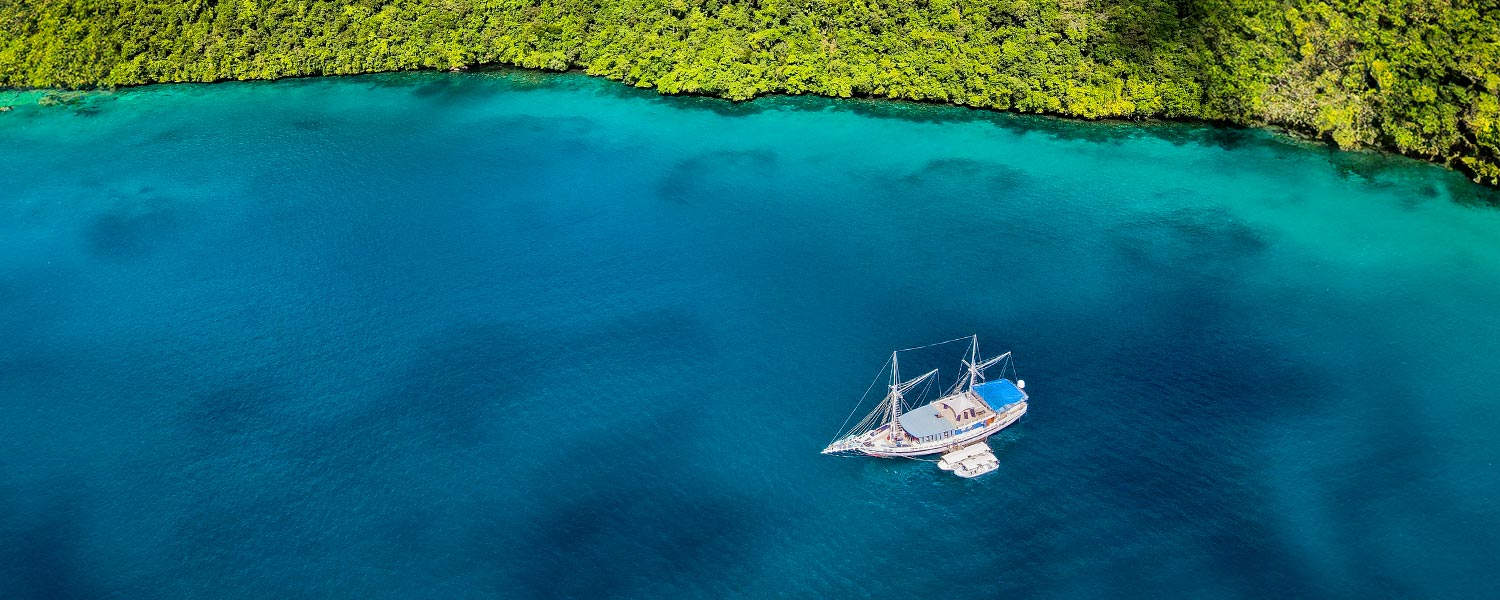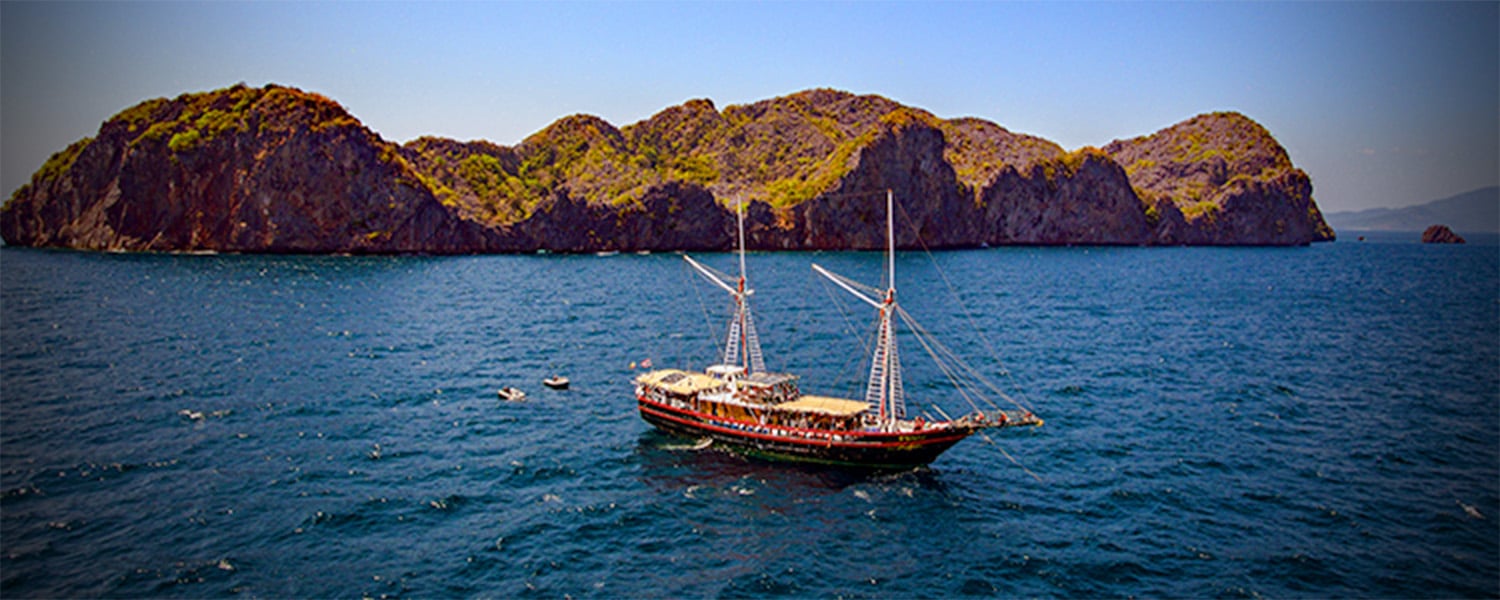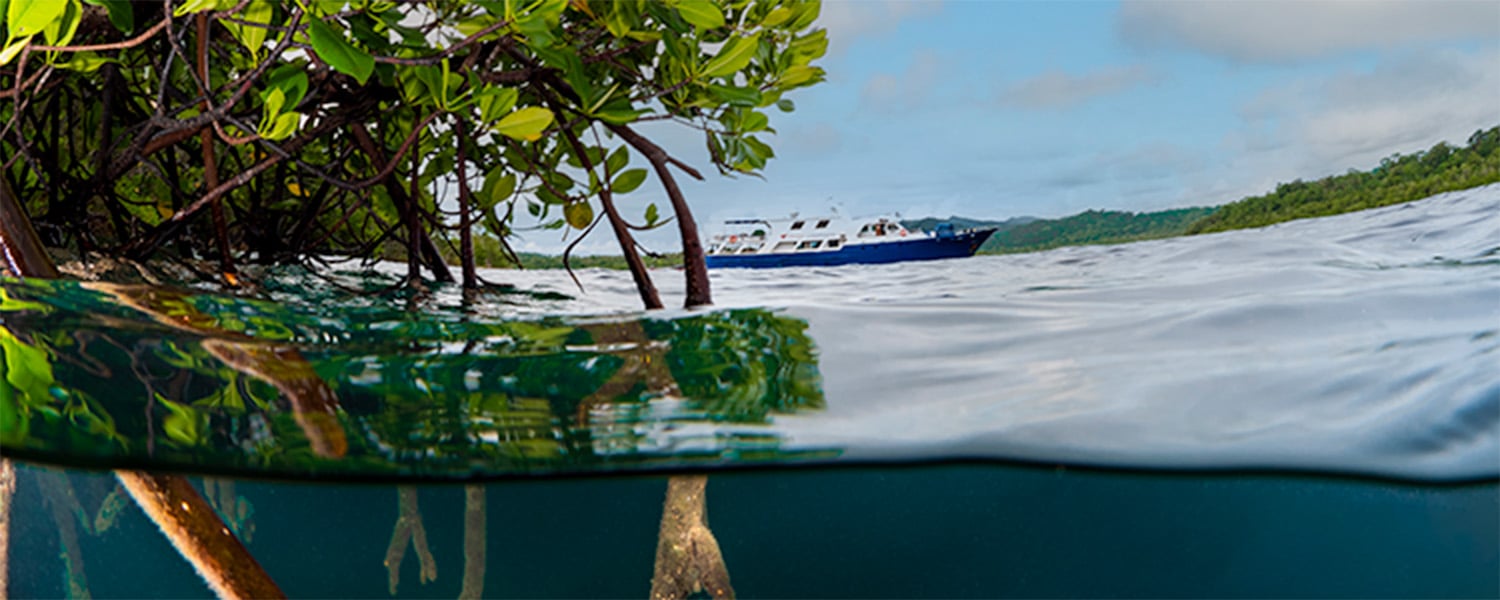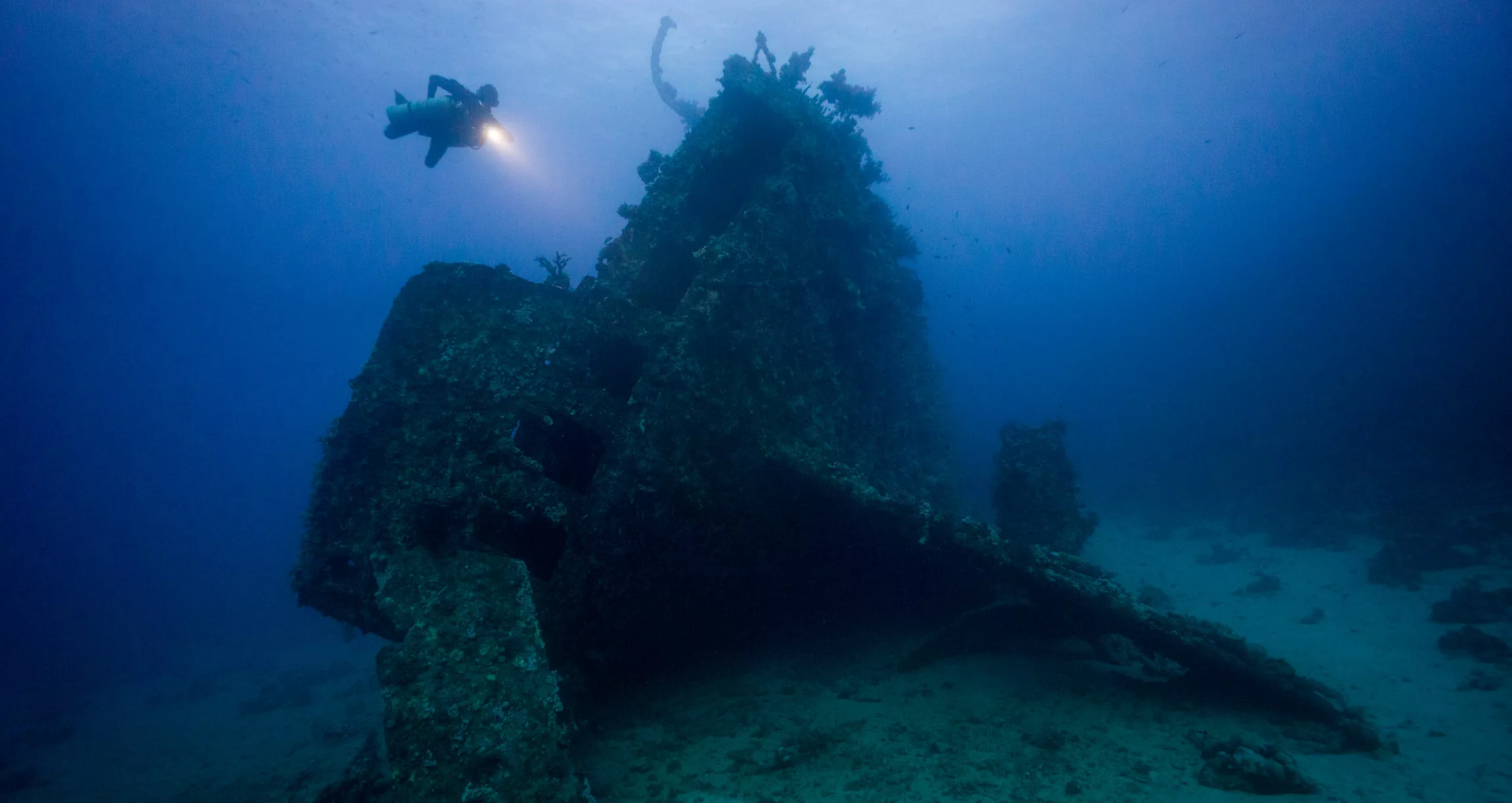Palau was the first country on our planet to create a shark sanctuary, on 25th September 2009. The tiny country is a leader when it comes to environmental protection as we have seen in previous articles. So it was no surprise (to us) that they were the first ones to innovate!
This first shark sanctuary forbids all commercial shark fishing within Palau’s waters. The sanctuary protects about 600,000 square kilometres of ocean, which is roughly the size of France! Palau is home to 135 endangered or vulnerable shark and ray species and conservation is at the forefront of this nation. They are showing all of us how it is supposed to be done!
A meeting at the UN that changed everything
President Johnson Toribiong made the announcement at a meeting of the United Nations on 22nd September 2011. Speaking at the UN Headquarters in New York, he also urged other countries to join the tiny nation and ban shark fishing in their own waters.
Palau was the first country in the world to put one and one together and take concrete action. They saw that the rampant, illegal, and wide scale removal of sharks from Palau’s waters was depriving the ecosystem of its apex predators. It was also affecting the country’s tourism, one of its main attractions.
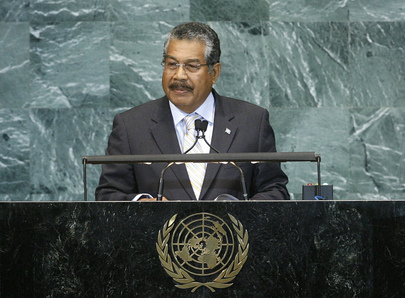
“The strength and beauty of sharks is a natural barometer for the health of our oceans.”
— President Johnson Toribiong at the United Nations meeting
Palau had already banned shark finning but they wanted to take it further. Sanctuary designations typically prohibit the following activities within a country’s full exclusive economic zone (EEZ).
- the commercial fishing of all sharks
- the retention of sharks caught as bycatch
- the possession, trade, and sale of sharks and shark products
Palau’s sanctuary also protected the entire country’s waters, instead of just a marine reserve. And they did not stop there. President Toribiong also called for a global ban on shark-finning and an end to bottom-trawling. Bottom-trawling is a fishing method that destroys valuable seafloor ecosystems such as coral reefs. It is environmentally unsustainable.
Why sharks should be protected?
As many as 100 million sharks are killed each year around the world. Half these kills are to fin them and use the shark fins in soup. The second cause of death for sharks are nets and over-fishing. They unfortunately suffer as by-catch for fishers hunting for other species.
Sharks unfortunately are killed at a higher rate than their populations grow. Nowadays, 40% of the sharks species are on the vulnerable lists. They range from “Critically Endangered” to “Near Threatened” on the IUCN red list. And sadly more are added year after year.
Sharks play a crucial role in healthy ocean ecosystems because they are a top predator. They keep the marine ecosystem in balance by feeding on animals that are lower in the food chain. If sharks become extinct, other predatory fish and marine animals will thrive. This will deplete the amount of fish available for food. Sharks maintain the natural balance and are part of a chain. If you remove one block from the chain, everything topples.
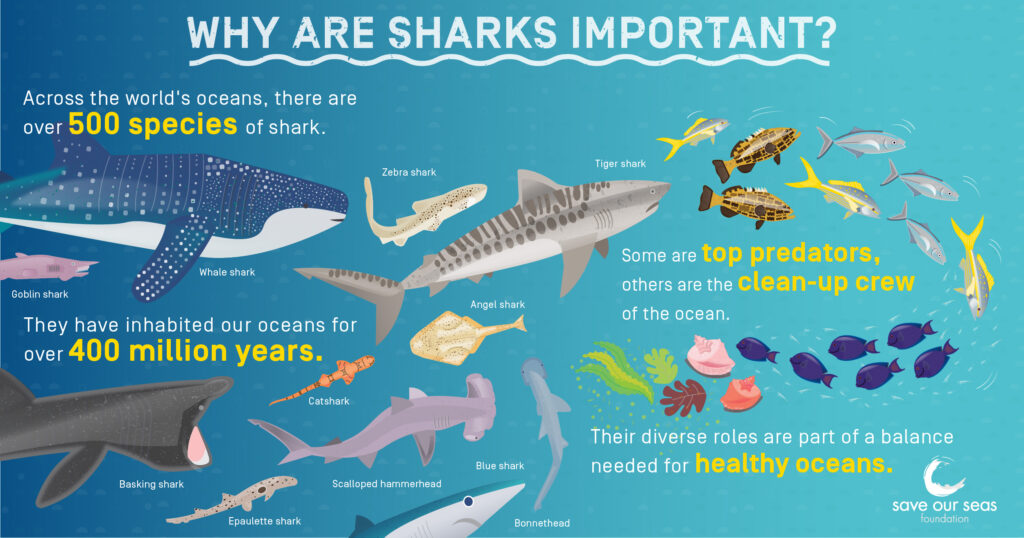
Palau is a small ocean nation and is very tuned in to any changes in the waters that surround it. They can see the effects first-hand and they decided it was time for action, especially for their self-preservation. And so the first shark sanctuary was born!
“These creatures are being slaughtered and are perhaps at the brink of extinction unless we take positive action to protect them. Their physical beauty and strength, in my opinion, reflects the health of the oceans; they stand out.”
President Toribiong
The hard road to success
Enforcing the ban has been difficult for Palau. Until recently, they only had one patrol boat and a couple of fiber glass skiffs to cover a territory the size of France. Many areas are remote, with very few inhabitants to keep an eye on any activity. In a recent estimate, 50 to 100 fishing vessels are operating illegally in Palau per year. Although Palau’s shark fishing law is in place, and carries a $250,000 US fine, shark fishing remains a highly lucrative business and fishing companies are risking it.
Recognizing that enforcement was a problem, with only one patrol boat at its disposal, the Palau Shark Sanctuary sought assistance in 2012.
29th March 2012
On 29th March of that year, there was a high profile incident. The authorities had been tracking 2 illegal Chinese fishing boats that kept evading them. That day, they managed to approach one of them and shot at the engines to kill them. Unfortunately, the bullet ricocheted killing a Chinese deckhand.
The Palauan rangers interrogated the rest of the crew. They soon learned that there was a larger ‘‘mother ship’’ farther out to sea, orchestrating the poaching raids. This launched an aerial search for the mothership in a Cessna and a marine search with the main patrol boat.
The patrol boat found the mothership and, after a cat and mouse game, managed to get it to halt, only to witness it burning…most likely from an intentional fire set to hide any evidence of poaching. The crew was rescued and immediately arrested.
As night fell, the plane had still not returned and it became clear that the pilot was lost. Even with the extraordinary efforts of the entire city of Koror, who lit every single light they could and fired every flare on hand to show them the way, the plane never returned. The last message from the plane was a mayday call that they were going to crash-land into the sea. The wreck has never been found.
The incident was the subject of newspaper headlines internationally for weeks. The Chinese government sent a diplomatic envoy to Palau to discuss the shooting. Palau’s president and attorney general opened an investigation. ‘‘Palauans are a very proud people,’’ Baiei said. ‘‘The whole thing was a tragedy and a really embarrassing one.’’ A little over a year later, Palau began working with SkyTruth and Pew to monitor its waters.
Technology to the rescue
But, as the Palauans and their allies are discovering, technology can be deployed for conservation. Just as authorities can use tracking devices and satellite data to monitor the activities of people on land, they are increasingly able to do so at sea.
The eventual dream is to create systems that pull all the antipoaching intelligence together in real time, giving the police and their helpers a God’s-eye view of their adversaries. In 2014, SkyTruth joined with Google and the nonprofit group Oceana to build Global Fishing Watch. This website will allow an army of would-be Bjorn Bergmans to track A.I.S. data on roughly 80,000 vessels worldwide. Last year, Pew teamed up with a British company called Satellite Applications Catapult to create a virtual ‘‘watch room’’ program. This draws on live satellite tracking data, displays a map of the world traversed by lighted dots, each one a fishing vessel. Even as the vastness of the oceans makes it easy for poachers to escape, technology is also making it harder for them to hide.
The Palauan government is also taking a very hard approach to anyone breaching the laws and will destroy vessels, prosecute crews, and fine heavily. Unfortunately, they often catch the “by-catch” while the big players remain out of reach.
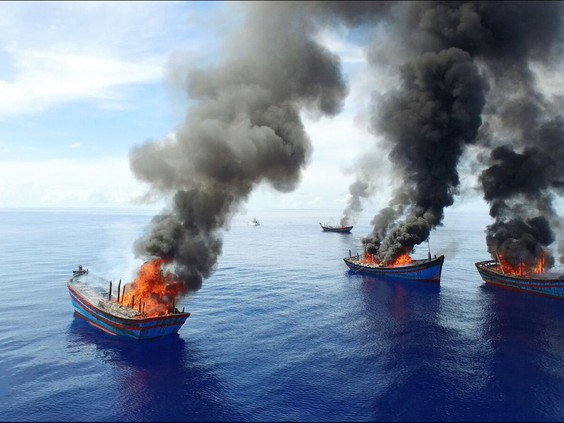
Lastly, Palau received help from the world. Japan donated a patrol boat, PSS Kedam. This vessel joined the ranks of Palau National Marine Sanctuary Forces. Earlier in 2020, Palau also received a brand new patrol vessel from Australia to replace the old and first patrol boat. This doubled their fleet, enhancing the country’s maritime surveillance in its Exclusive Economic Zone (EEZ).
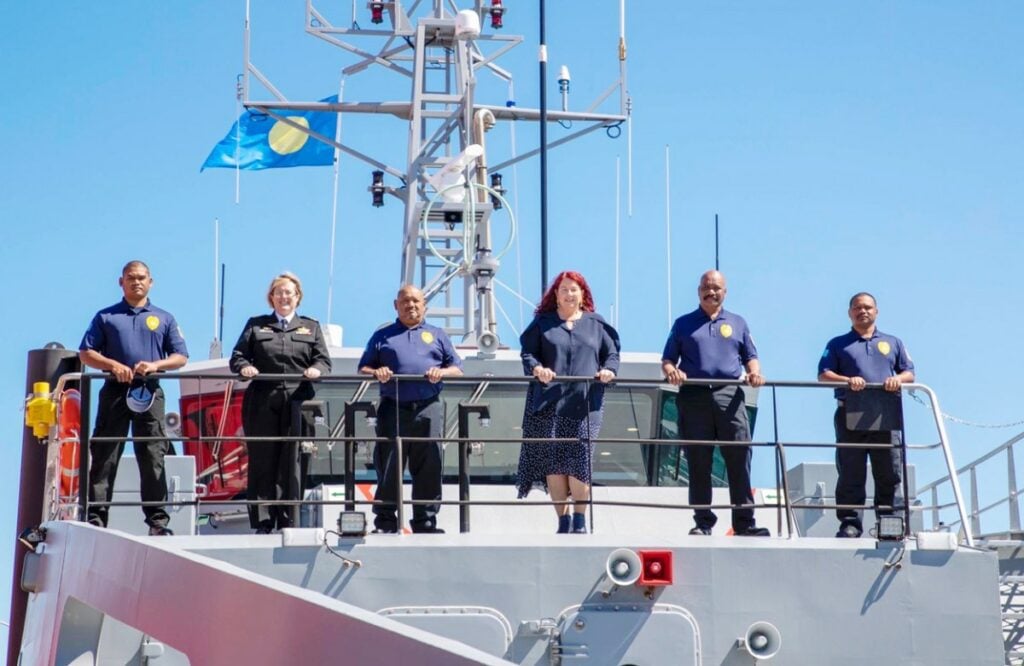
The benefits for Palau 12 years later
So 12 years on, what does it mean for Palau? Economics was clearly an incentive for the Palauan government, as the country derives most of its income from tourism. More than half of Palau’s gross domestic product comes from tourism and most tourists are visiting Palau to enjoy its reefs. Palau reefs house more fish, coral, and other invertebrates per square mile than virtually anywhere else on Earth. Sharks are, of course, a big attraction for scuba divers and play a role in keeping Palau coral reef ecosystems healthy.
So boiling it down to simple economics
- Alive, an individual shark is worth more than $170,000 USD annually in tourism dollars, or nearly $2 million USD over its lifetime.
- Dead, an individual shark can go for U$D100 — and usually, that money winds up in the pockets of a foreign poacher.
All data analysis and peer reviewed articles show that the local community has benefited from the sanctuary. The money is staying in the country to be used for further projects. An example of such study can be found here
Other than an economical impact, however, the sanctuary has also had an environmental impact. As published, for example, in this article; “However, given that threats, declines in populations and overall concerns for sharks appear to be lower within shark sanctuaries compared to non-shark sanctuaries, and that general awareness of the shark sanctuary regulations is high, there is cause for optimism that shark sanctuaries may provide quantifiable benefits.”
10 years later
The shark fishing ban also had another effect. In 2019, ten years later, Palau banned fishing in 80% of its marine territory for marine conservation. The 20% left is for Palauan fishermen and a few foreign vessels only.
People on the Pacific archipelago of Palau firmly believe in the old saying, “We do not inherit the earth from our parents, we borrow it from our children.“
For centuries, they have been managing their delicate marine ecosystem sustainably through the practice of “bul.” This involves making certain parts of the reef off-limits to fishing during spawning and feeding to allow its 1,300 species of fish to thrive. Now, bul has become the philosophy on which the island nation has based its new protected marine reserve. President Remengesau Jr said, “There’s a deeper meaning to bul. It’s prohibition in the sense that you’re doing this to benefit your children, because you have to think about tomorrow and the day after and the years coming. In Palauan tradition, families pass down through generations the idea of having a positive impact on the planet. “Always leave your island a better place for your children.”
The first shark sanctuary but not the last
Luckily, this started a worldwide movement and more and more governments have followed suit. The Maldives created their shark sanctuary, shortly after Palau, in 2010 and since then, more and more nations have joined.
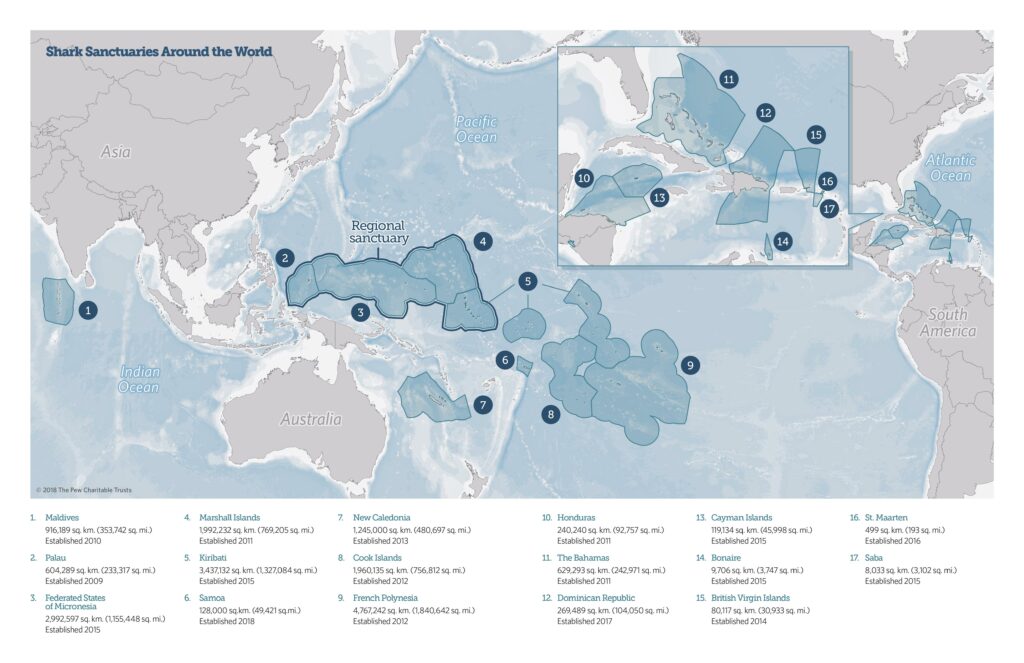
In August, 2011, the Federated States of Micronesia and the Marshall Islands announced plans to join Palau in a region-wide sanctuary. This joint sanctuary nowadays covers 2,000,000 square miles (5,200,000 km2) of ocean. To put it in perspective, this is almost the size of Australia!
